The Renegade
A once popular gay bar, restaurant, and resort at the Delaware beaches.
1980-2003,
4274 Coastal Highway, Rehoboth Beach, DE
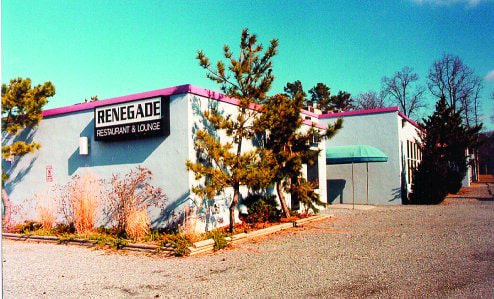
The Renegade was a restaurant, bar, dance club, and social center of the LGBTQ+ community of Rehoboth Beach for three decades. While the Renegade was not the first bar to serve LGBTQ+ people in Rehoboth, its impact on the community was massive and enduring. It grew over the years to also feature a two-story dance floor, pool and deck, cabaret room, and motel units to provide overnight accommodations to guests. The Renegade initially served mostly men, but as more queer people began vacationing in Rehoboth, the patrons diversified to include more women and transgender people.
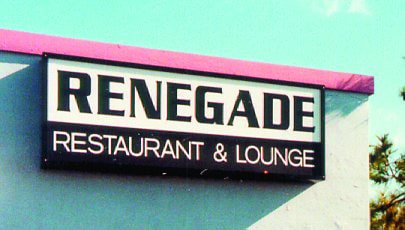
The Renegade opened decades after closeted queer people from nearby Washington D.C. had begun vacationing in “The Nation’s Summer Capital,” unofficially kicking off Rehoboth Beach’s long queer history. As the city saw an increase in queer visitors and residents in the 1970s, Washington D.C. business owner, Glen Thompson, wanted to serve the growing community by opening a gay dance club downtown—something that had never been done before.
After struggling to obtain a license for almost ten years, he successfully built and opened the Renegade Restaurant & Lounge in the summer of 1980, right outside of the entrance to downtown Rehoboth. The complex was built on a seven-plus-acre property and the original building was one story, painted in shades of brown with a restaurant, bar, pool area, clothing store, and cabaret room.
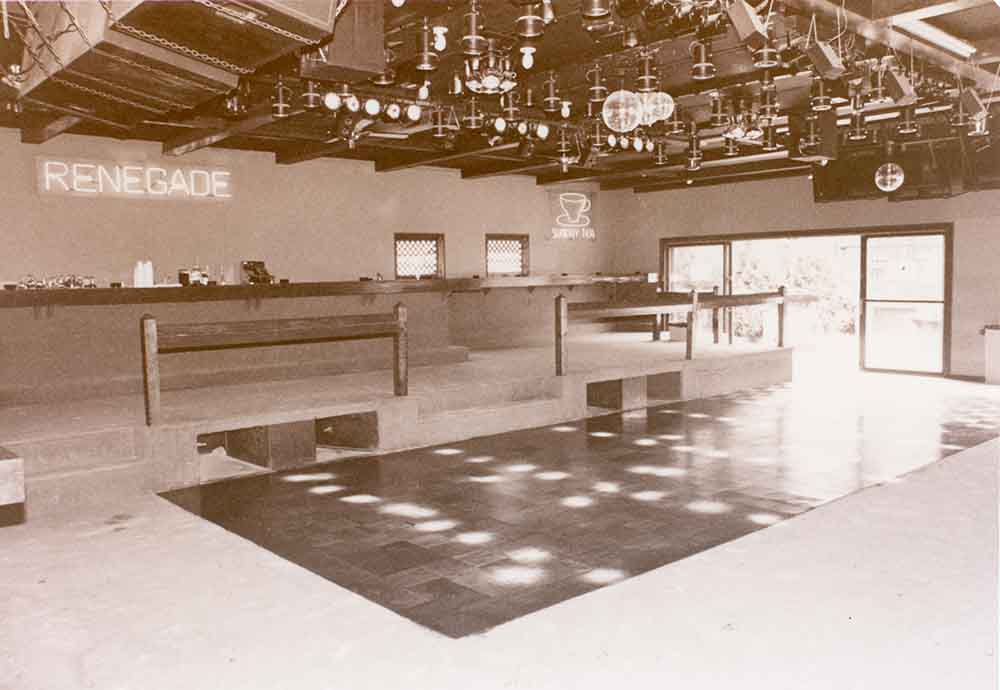
Eight weeks later, on July 3, 1980, the Renegade’s bar and lounge burned to the ground in what was a suspected case of arson. No one was hurt, and Thompson was able to rebuild and reopen for Labor Day that year. While the fire was not believed to be a homophobia-driven case of arson, the patrons of the Renegade recalled receiving verbal and physical harassment while walking to or standing outside of the resort. Guns were fired, beer cans were thrown, and slurs were hurled at the patrons of the Renegade; however, they found safety and a sense of community within the building’s walls.
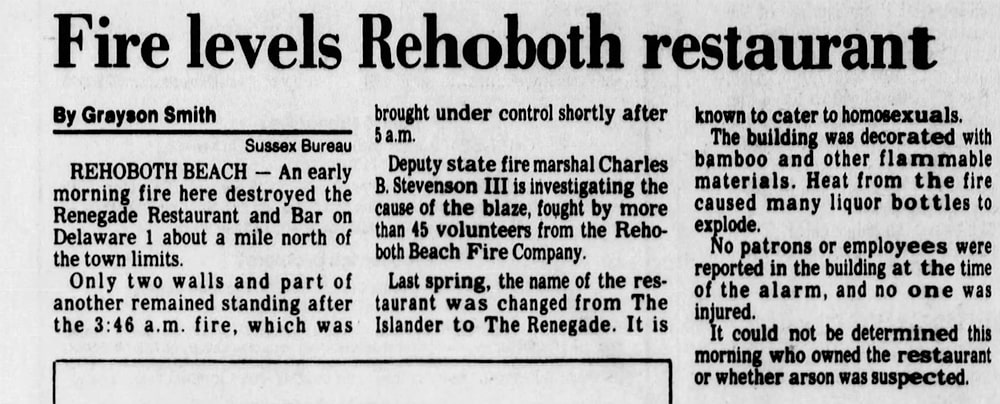
After it reopened in the fall of 1980, the Renegade expanded to include eight small cottages adjacent to the pool deck that were used by drag queens and entertainers as dressing rooms and as a place for people to have private encounters. With that expansion, the Renegade resort offered not only a restaurant and bar, but also overnight accommodations, a pool, karaoke nights, cabaret shows, drag performances, and contests. A 1981 article in The News Journal claimed the Renegade had “made the gay presence almost impossible to ignore.” The article continues to describe the interior:
The front section is decorated with three white fireplaces, Victorian photos and oil paintings in ornate frames, bookcases, mirrors, sofas and plants. The mid-section has a wooden dance floor rimmed with electric disco lights. Outside there is a wooden deck with picnic tables, used for ‘Sunday Tea Dance,’ when hot dogs and hamburgers are freely distributed to those who come to lounge on the deck and drink.
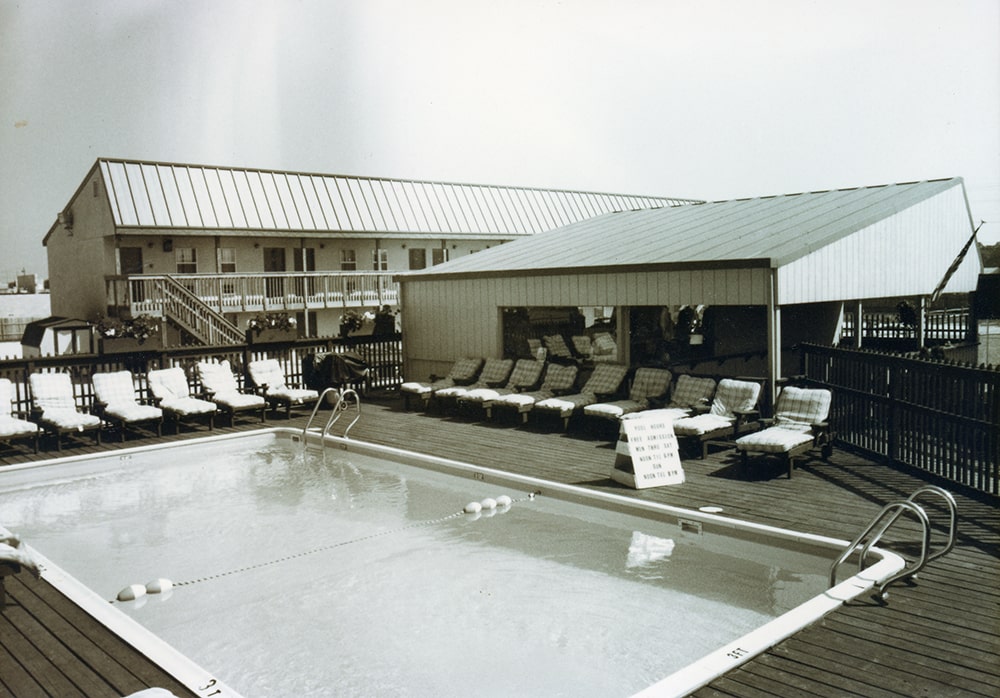
The Renegade was unique because it offered varying atmospheres. During the day, visitors could lounge by the pool, and in the evening enjoy multiple bars located throughout the complex. Over the three decades it was open, the Renegade underwent continual updates and changes to attract new visitors and maintain its status as the premier Rehoboth-area gay club.
In 1985, Thompson added a twenty-unit, 1940s-era motel to the Renegade property, further increasing its appeal to out-of-town visitors. Around 1988, the dance floor was renovated from a wood floor to a black-and-white checkered design. Adjacent to the dance floor was a piano bar that featured cabaret shows and a pool deck with its own bar. For a period of time, hanging from the ceiling was “a 1969 Spit-Fire convertible with a male mannequin with laser lights for eyes.”
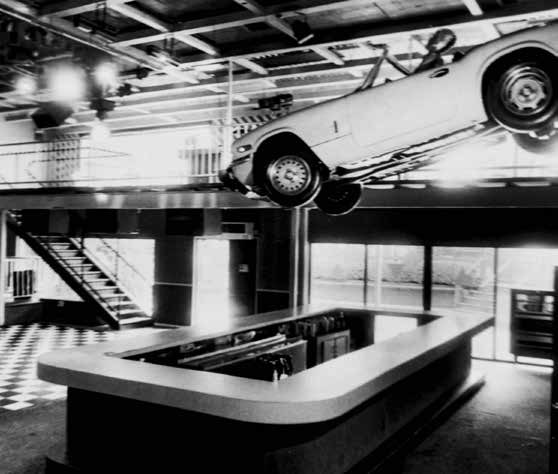
The Renegade’s former general manager, Wayne Hodge, recalled painting the car hot pink and dressing the mannequin for holidays. After the late 1980s renovation, the roof was raised to provide a second-story bar. Slanted mirrors hung behind the bar and high-tech laser lights were installed, creating an atmosphere that opened up the room and added movement to the lighting.
The HIV/AIDS crisis greatly impacted the patrons of the Renegade. The first case of HIV/AIDS in Rehoboth was reported in 1983 and Delaware’s Department of Public Health was slow to provide assistance for people with HIV/AIDS. Initially, the Renegade was not willing to host the first HIV/AIDS fundraisers organized by the Delaware Lesbian and Gay Health Advocates (DLGHA).
The fundraisers were instead held at Nomad Village, a gay-friendly bar in Bethany Beach that was open from 1962 until the early 2000s. But, beginning in 1991, the Renegade hosted Rehoboth’s first annual PRIDE fundraiser for various HIV/AIDS service organizations, including DLGHA.
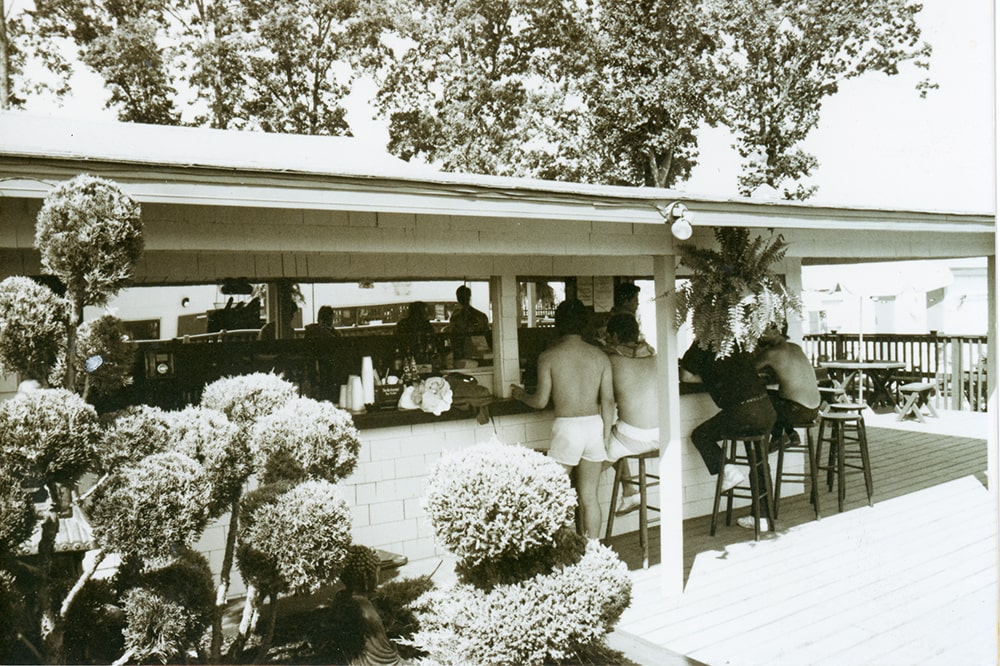
The Renegade was further impacted by the HIV/AIDS crisis when in 1987, Delaware’s then-Speaker of the House, B. Bradford Barnes, attempted to introduce a bill that would ban homosexual activity and mandate premarital screening for HIV/AIDS. In an attack on establishments serving queer people, Barnes wrote in a two-page report that gay bars in Rehoboth were the “East Coast distributors” of HIV/AIDS. His comments drew criticism from gay-owned businesses, state health officials, and fellow legislators. Barnes ultimately apologized for his comments about Rehoboth Beach-area bars that cater to gay people after receiving criticism and in light of Thompson’s threat to sue Barnes because of his negative public commentary.
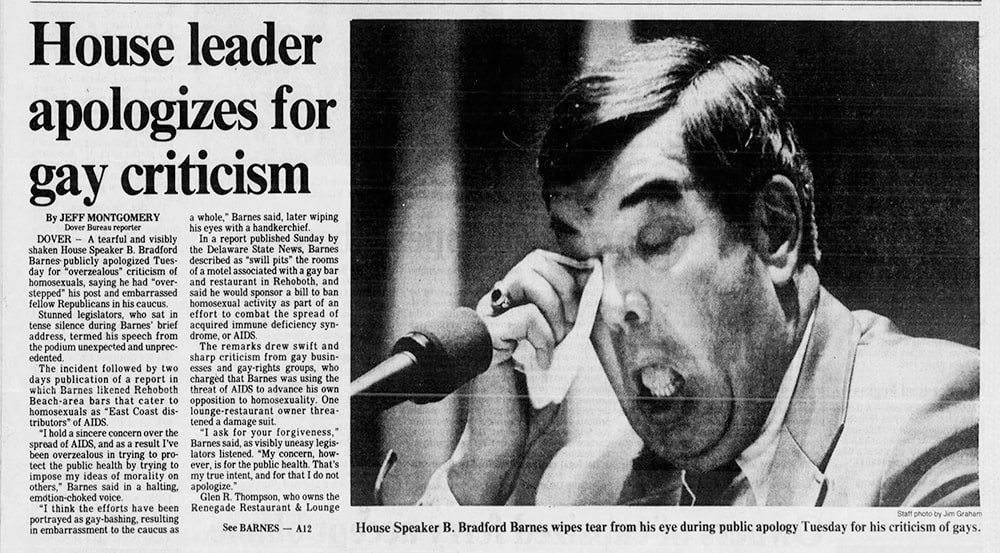
While the Renegade was a uniquely welcoming place for the queer community at the time, Thompson recalled that, in the beginning, the Renegade hosted many more men than women. This was corroborated by lesbian author and former patron of the Renegade, Fay Jacobs, who recalled the bouncers at the Renegade not being friendly to women for the first couple of years. By the mid-1980s, more women began frequenting the bar. Patrons included a mix of gay, lesbian, bisexual, transgender, and heterosexual people. Among the most famous events at the Renegade were the Tea Dances, the Miss Gay Delaware Regional pageants, and Christopher Peterson’s EYECONS Show.
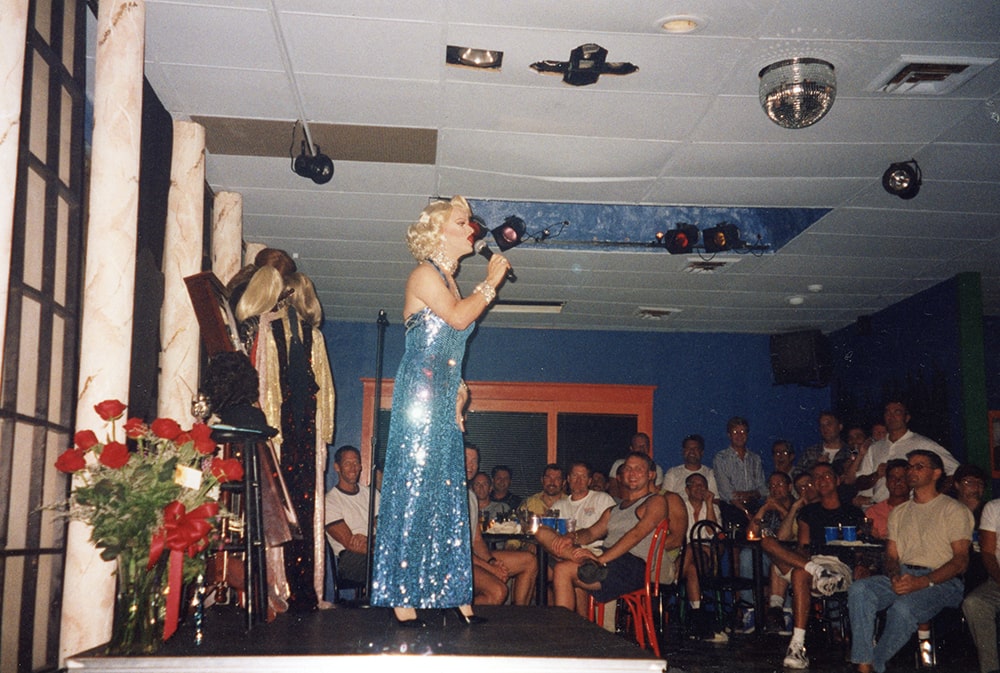
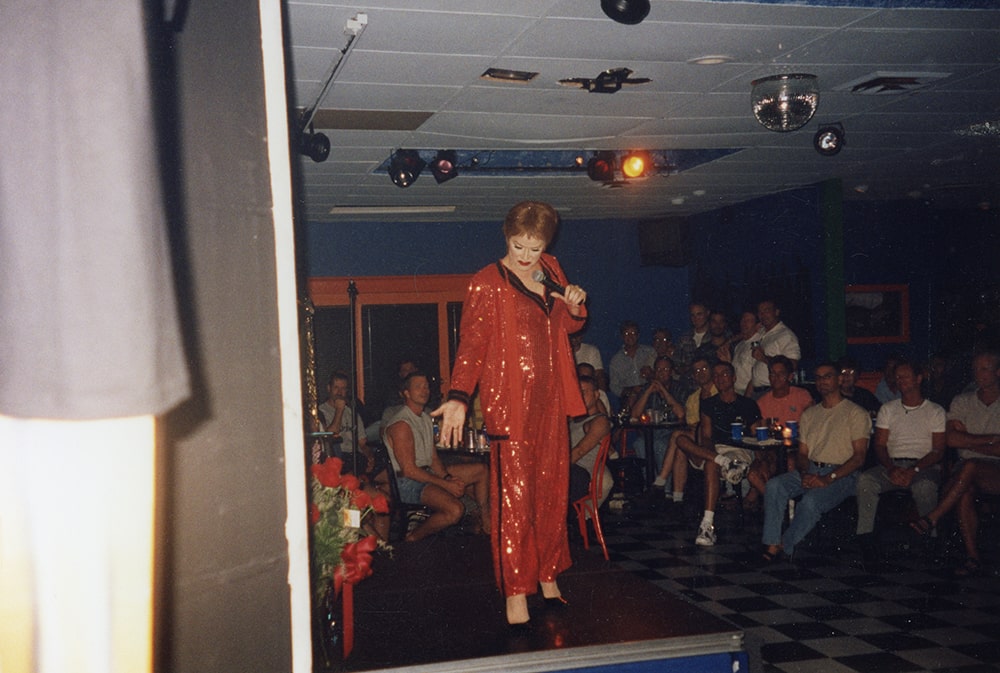
Peterson’s EYECONS show premiered at the Renegade the summer of 1998 after owners of the Renegade saw his show in Key West, Florida, and asked him to work in Rehoboth. The show, which is still performed as of 2023, includes live impersonations of gay icons like Marilyn Monroe, Judy Garland, and Lucille Ball, among others. Peterson performed as five different “gay icons” each night, singing live and doing wardrobe changes on stage. For example, when in character as Marilyn Monroe, Peterson would sing a song called “Condoms are a Girl’s Best Friend,” including a campy reference to the safe-sex campaign of the HIV/AIDS crisis. His performances brought patrons to the Renegade on Thursdays, Fridays, and Sundays.
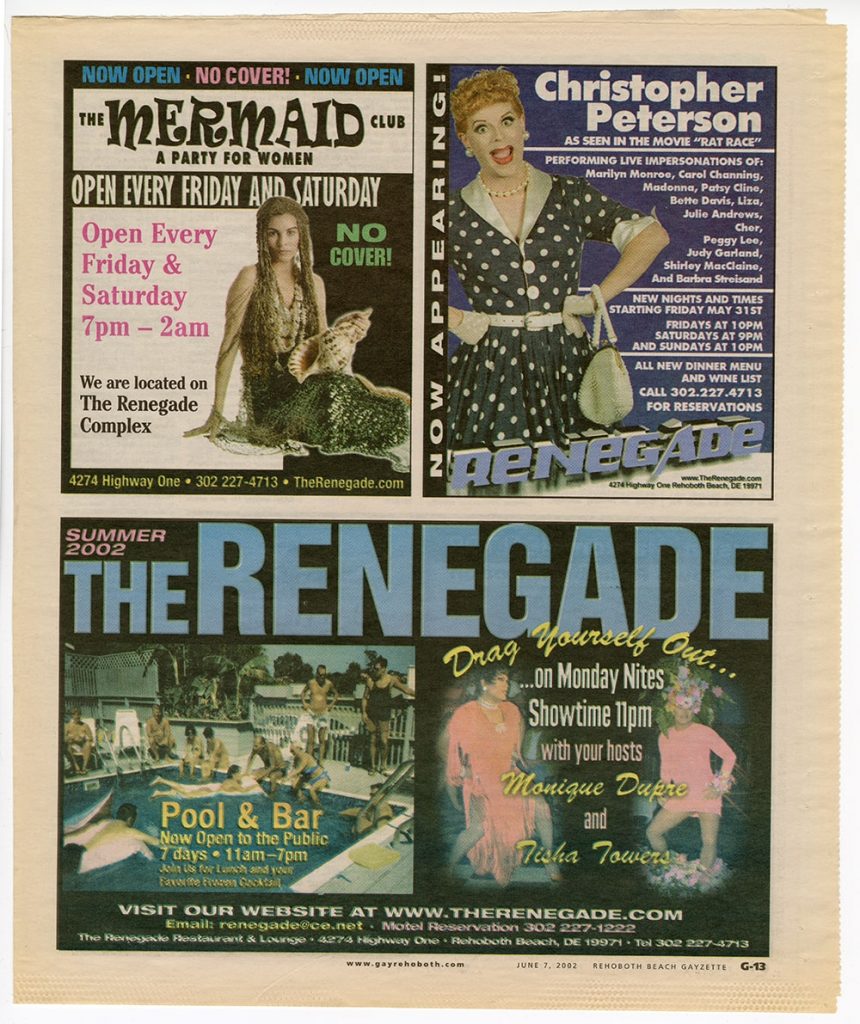
Around 1996, Kathy Carpenter, a local transgender woman and advocate, was contracted to work on building updates at the Renegade. Her day job was as a contractor, but by night she would dress as her true self and patronize the Renegade. In a 2022 oral history interview with the Delaware Division of Historical and Cultural Affairs, she said that no one recognized her until drag queen Miss Joanna Fantasia referred to her as “that little carpenter.” Thus, her name became Kathy Carpenter and she found her chosen family, friends, and a support system at the Renegade. Carpenter worked on building the sets for Peterson’s EYECONS show for years and she received a sweetheart award, Miss Sussex County 2000, during the Miss Gay Delaware Regional Pageant for her advocacy work with the LGBTQ+ community of Rehoboth.
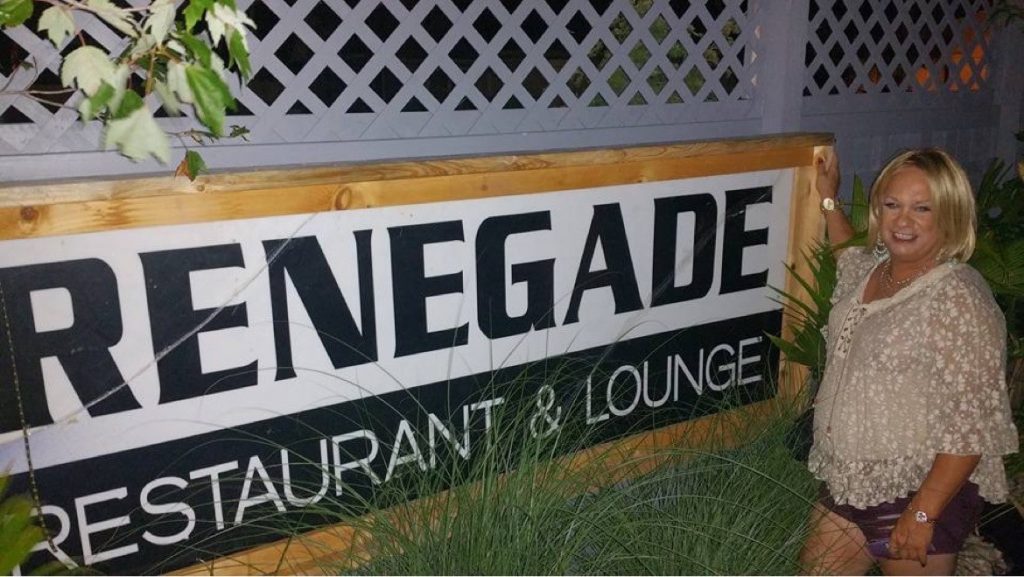
The Renegade Bar closed in 2003 due to growing expenses, Coastal Highway’s development, and new rules and regulations about clubs and cabarets in Rehoboth, including a ban on indoor smoking. Hodge also cited economic changes for patrons saying, “20-year-olds don’t have the money to come and stay at the beach like they used to.” By the early 2000s, it became more expensive for young queer people to vacation in Rehoboth, even for a weekend. Jacobs, who has written numerous articles on the queer history of Rehoboth where she still lives, estimated that at least 30,000 people danced, dined, attended shows, and sang karaoke at the Renegade each year after its opening. Today, there are no dance clubs that are the equivalent of the Renegade; however, many queer bars, restaurants, and stores still exist throughout the Rehoboth area.
Photo Courtesy: Letters from CAMP Rehoboth, Wayne Hodge, The News Journal (Wilmington, DE), July 3, 1980, William Way LGBT Center John J. Wilcox Jr. Archives image, and Kathy Carpenter
Sources:
- “7th Pride Event at the Renegade,” LETTERS From CAMP Rehoboth, July, 26, 1997
- Interview with Wayne Hodge, April 13, 2023, Division of Historical and Cultural Affairs
- Interview with Christopher Peterson, March 23, 2023, Division of Historical and Cultural Affairs
- Jacobs, Fay, “The Renegade After 25 Years – Gone but not Forgotten,” LETTERS From CAMP Rehoboth, February 7, 2003
- Oral history interview with Kathy Carpenter, June 24, 2022, Division of Historical and Cultural Affairs
- Sears, James, “A Tale of Two Dance Clubs: The Renegade & The Strand,” The Rehoboth History Project, LETTERS from CAMP Rehoboth, November 13, 2020
- Soulsman, Gary, “Gays have found a refuge in resort town atmosphere,” The News Journal, July 26, 1981
Explore Other Places
-
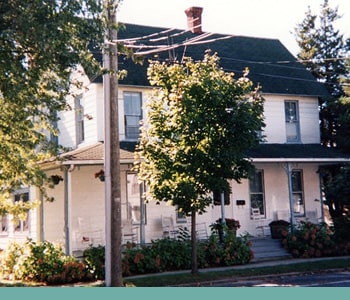
Rehoboth Guest House
40 Maryland Avenue, Rehoboth Beach, DE
A historically queer-friendly guest house that still welcomes visitors today.
-
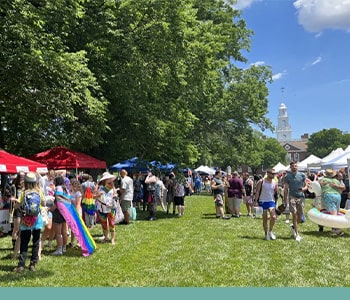
Legislative Hall and Legislative Mall
411 Legislative Avenue, Dover, DE
The site of Delaware’s state capital building and the outdoor location of large, annual LGBTQ+ festivals.
-
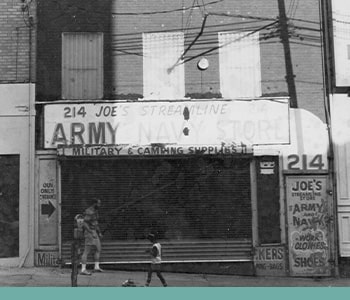
Griffin Community Center
214 N. Market Street, Wilmington, DE
A Former LGBTQ+ community center in northern Delaware that offered a wide variety of services and support during a time of need.
-
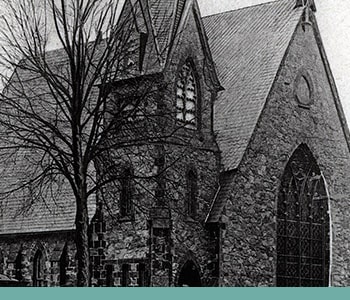
Daugherty Hall at the University of Delaware
17 W. Main Street, Newark, DE
A gathering place for all and where the University of Delaware’s Gay Student Union hosted its weekly coffeehouses.
-
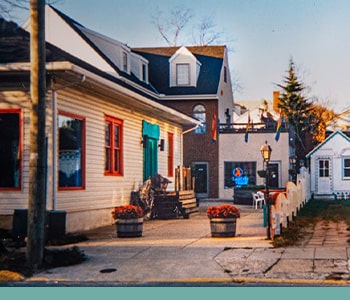
CAMP Rehoboth Community Center
37 Baltimore Avenue, Rehoboth Beach, DE
A longstanding LGBTQ+ community center in Sussex County.


